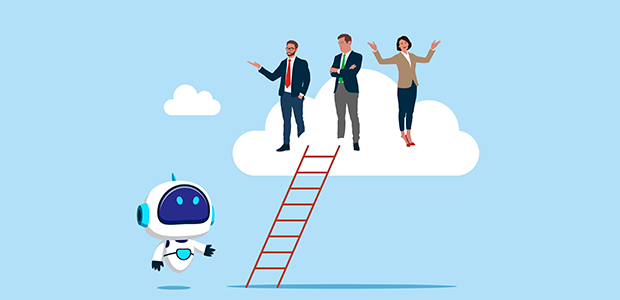
The next frontier of AI isn’t about replacing people – it’s about empowering them
Raising the topic of artificial intelligence (AI) often sparks debates about job losses and automation replacing humans, and this can be the case in hospitality, but in my view, in an industry built on personal connection, a different story is unfolding. In hospitality, AI isn’t replacing people – it’s empowering them. The next frontier of automation is human-centred, using technology to amplify empathy, not erase it. I believe everyone in hospitality needs AI.
I’ve been fortunate to establish and run Silchester Farm, a luxury wedding and events venue in Hampshire, for the last six years, and my team is busy. But they’re not busy focusing on our current guests all the time, the ones actually at the farm; they’re juggling enquiries, new bookings, last-minute changes, and endless admin across multiple channels. It’s emotionally demanding and operationally intense, and not necessarily what they had in mind from a career in hospitality.
At the same time, the sector faces rising costs, tight margins and persistent labour shortages. In the UK, staff vacancies are still almost 50% higher than before the pandemic, and turnover regularly exceeds 30%. According to Grand View Research, the UK hotel and hospitality management software market is forecast to reach around £360 million by 2030 – evidence that investment in smarter, more efficient operations is accelerating even as the sector grapples with ongoing staffing pressures. Yet innovation isn’t just about efficiency – it’s about enabling people to thrive.
What I learned was simple: people don’t leave hospitality because they dislike the job - they leave because the job has become unmanageable. When skilled staff are buried in emails and spreadsheets instead of delivering great service, they burn out. And when great people leave, consistency suffers. Guests notice. Venues struggle.
The solution isn’t to replace people with AI. It’s to remove the friction that stops them from doing what they do best, and now AI-powered automation can handle repetitive, low-value tasks that drain time and energy. Answering common guest questions, tracking enquiries across email, web and social, updating calendars or CRM systems; these tasks are essential, but they don’t require human empathy or judgement. Freeing staff from this work doesn’t remove their role – it means they can focus on what they’re truly good at.
Imagine every enquiry from every channel consolidated into one place. Common questions answered instantly and accurately. Complex requests flagged for human attention. All in your venue’s tone of voice. Suddenly, your team isn’t firefighting – they’re hosting. They’re building relationships, adding personal touches and solving problems before they escalate.
This “AI plus human” model is what drove us to build AIVA Revolution, to help make our staff indispensable. When they are free to focus on guests instead of admin, morale improves. Their skills matter again. They become brand ambassadors, not ticket processors. They create the “wow” moments guests remember.
Venues using intelligent automation see faster response times, more bookings converted from enquiries, better guest feedback and clearer visibility over operations. They can scale during peak season without hiring at the same rate. They become more resilient when labour is tight. They can reinvest in training and experience rather than constantly recruiting.
Forward-thinking startups in hospitality tech are giving teams superpowers: instant access to knowledge, flawless consistency, 24/7 responsiveness, perfect memory, zero burnout. AI becomes your best co-worker – always on, never tired, endlessly scalable.
Hospitality hasn’t always been ahead of the curve on innovation, but in this blended experience it can lead the way. What’s happening in hospitality mirrors a broader movement across industries: the shift from automation to augmentation. The companies that win won’t be those that automate people out of work, but those that empower them with smarter tools.
Showing how AI can help create workplaces where technology does the heavy lifting and people do what only people can do: empathise, adapt, connect and delight. In high-pressure, high-churn industries like hospitality, that isn’t just good ethics. It’s the smartest business strategy there is.
For more startup news, check out the other articles on the website, and subscribe to the magazine for free. Listen to The Cereal Entrepreneur podcast for more interviews with entrepreneurs and big-hitters in the startup ecosystem.

